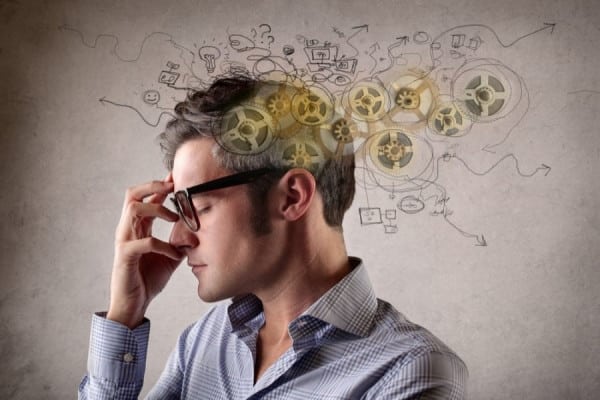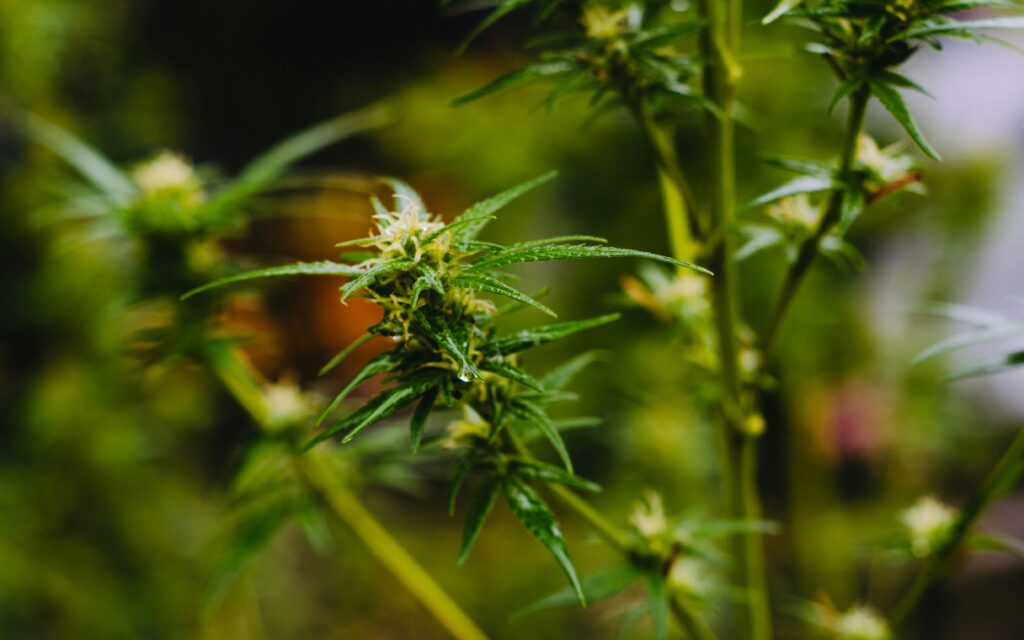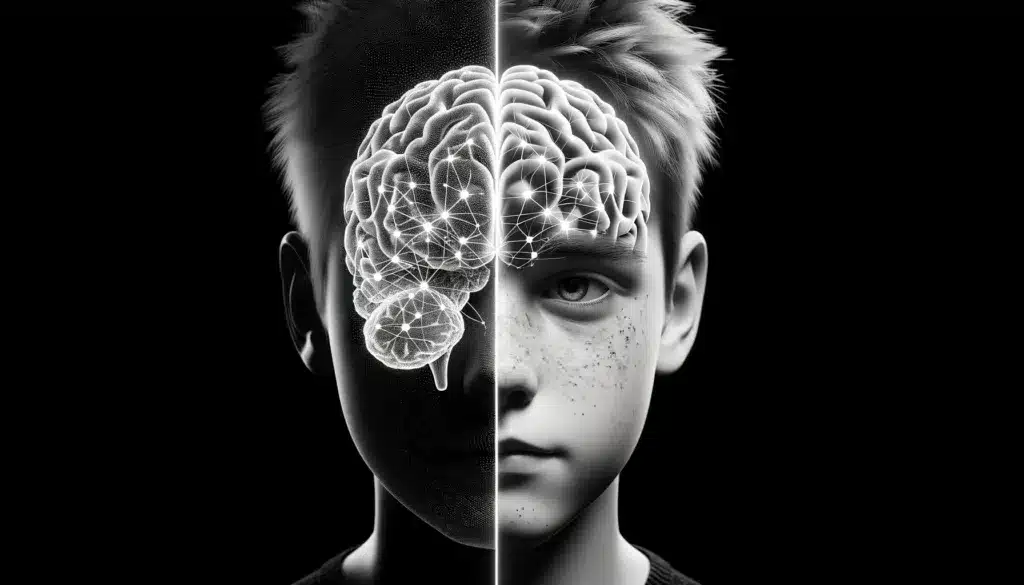
by Petar Petrov, Staff Writer for Terpenes and Testing Magazine
Cannabis unlocks a wondrously distorted world of altered thoughts, emotions, and perceptions, which some people fall in love with and want to permanently move to. Others never really get accustomed to this realm and shy from it.
It seems that this world is similar to what’s known in scientific circles as a “noisy brain,” and it can, indeed, reverberate through some cannabis users’ brains even during resting states.
The term “noisy brain” could explain a lot of the ubiquitous reactions we experience under the influence of cannabis and during periods of regular use altogether.
What is “Noisy Brain?”
“Noisy brain” basically refers to the chaotic hyperactivity that can go on in our brains at virtually any given moment. It’s what little kids’ brains are like practically all the time. It’s like trying to work while listening to music too loud, especially music with lyrics – it’s harder to concentrate, as you literally can’t hear your own thoughts over all the noise and extra information.
The “noise” in “noisy brain” is somewhat analogous to what cannabis extractors call “noise” – all the unwanted compounds in a cannabis plant that they weed out from the desired ones which they want to extract and purify.
However, while “noisy brain” can certainly be overwhelming, it isn’t necessarily bad, and its nature definitely depends on the frequency and volumes of the noise, as well as the ability to channel it into something productive, or the lack thereof. That being said, more often than not, this may be easier said than done.
There’s a book about it, called “The Noisy Brain” by Edmund T. Rolls and Gustavo Deco, that explores how “noisy brain” affects “decision-making, perception, memory recall, short-term memory, attention, and brain dysfunctions that occur in schizophrenia, normal aging, and obsessive-compulsive disorder.”
“Noisy Brain” in Cannabis Users’ Brains in Resting State
Research from the Center for BrainHealth at The University of Texas at Dallas found that cannabis users’ brains have increased cortical activation during resting state, compared to non-users. (1)
“This increased cortical activity may indicate a loss of neural refinement and efficiency that may indicate a “noisy” brain,” the study states.
Cannabis users’ brain waves were more active during resting state compared to the ones of non-users, which can be disturbing and overwhelming, filling the mind with the loud background noise of persisting thoughts. It is something like the labored, fraught sleep you get when you don’t even realize you’re actually sleeping, and dreams seem more like waking thoughts. This brain waves’ hyperactivity seems to be a pattern that transcends cannabis use, as similar findings have surfaced in studies on heroin-, alcohol- and cocaine-dependent users. (1)
Furthermore, the study detected an increased communication between the frontal regions of cannabis users’ brains during resting state compared to the ones of nonusers, which the researchers take as a sign of their compromised ability to just relax and control their thoughts. This is line with the results of previous studies the researchers have conducted.
For reference, the frontal brain regions are responsible for motor functions, problem solving, spontaneity, memory, language, initiation, judgement, impulse control, and social and sexual behavior. In other words, the effects of cannabis use can spill over into many different aspects of users’ lives even when they’re not under the influence.
Not only does the brain’s tampered resting state likely result in a loss of mental focus and sharpness during its other states, but the researchers say this rampant neural activity makes it harder for cannabis users to stop doing certain tasks. (1)
This might explain the eating, TV watching, and gaming sprees that have become so stereotypical of the stoner lifestyle. In fact, such habitual binges are probably even harder to break away from as they create a “noisy brain” even without cannabis, swamping our brains with constant information and preventing it from producing thoughts on its own. Research has shown that people, cannabis users or not, are practically wired to binge watch TV.
Furthermore, when you breakdown anxiety and creativity, they start to seem more like binge-thinking, which is probably why they’re also common reactions to cannabis use.
“Noisy Brain” and Anxiety
When you think about what anxiety is, not only does its connection to “noisy brain” become practically undeniable, but the two conditions sound almost the same.
Anxiety is defined by the whirlpool of worrying, intrusive thoughts, many of which are products of serious distortion and exaggeration. Moreover, in its obsessive and stubborn nature, anxiety is practically a spree in its own right, a spree of relentless thoughts that become increasingly hard to stop, especially in the context of “noisy brain” and cannabis use.
“Noisy Brain” and Creativity
50% of cannabis users believe the flower makes them more creative, and just like with anxiety, when you break down creativity, it becomes evident that it’s practically “noisy brain’s” nicest and most productive manifestations.
Creativity, just like anxiety, is also a whirlpool of sometimes random and/or distorted, unusual thoughts. Not only that, but a key feature of the mechanisms behind creativity make its connection to “noisy brain” almost undeniable – the unwritten rule of the creative process is to give ideas you’ve been working hard on some time to breathe, during which they magically fall into place and align in the exact way that has been eluding you. This is because of the same reason why scientists have proclaimed that that studying before bedtime is best – during the resting period, the acquired data forms the necessary connections and sinks in.
This is why some view a “noisy brain” as the state of elevated brain activity, necessary for distant, vague ideas to crystallize, and also why sometimes the “Eureka!” moment seems to come out of nowhere, when actually, the brain has been processing the information all along. While there are no scientific studies conducted specifically on this theory, research has shown that regular cannabis users’ brains have increased connectivity, which might account for the random and/or divergent streams of thought that sometimes take over our minds when high.
It All Depends on the Individual and the Use
With all that in mind, however, it’s important to remember that cannabis effects are quite individualistic and also depend on amount and frequency of use, with the opposite reactions to anxiety and creativity being just as widespread, if not even more.
There are many cases of cannabis toning down creativity, along with thoughts altogether. Let’s not forget that cannabis is an extremely popular treatment for anxiety when used in moderation. Especially for people who suffer from PTSD, cannabis can be a true godsend, helping their brains silence the mental horrors and function properly, during both active and resting states. (2)
Having a “noisy brain” can certainly be tiresome, to say the least. Every brain needs some quiet time to be at its best. That can be particularly true for geniuses whose minds are already subjected to ceaseless, turbulent circulation of ideas. It can also be true for people who just need to shut down their minds, catch their breath, and relax.
The bottom line is cannabis needs to be consumed in the right amounts, which vary from person to person. Each individual needs to listen to his/her mind and see what works best to keep it healthy, strong, and capable of weeding out the noise from the music and sounds of lightbulbs lighting up.
References:
- Prashad, S et al. “Cannabis users exhibit increased cortical activation during resting state compared to non-users”, NeuroImage, 2018; 179: 176-186. [journal impact factor = 5.426; cited by 2]
- Sexton, M. et al. “A Cross-Sectional Survey of Medical Cannabis Users: Patterns of Use and Perceived Efficacy”, Cannabinoids and Cannabis Research, 2016, Volume 1.1: Pages 131-138. [journal impact factor = N/A; cited by 39]
Image Credits:Rx Leaf
Visit www.terpenesandtesting.com and www.extractionmagazine.com





